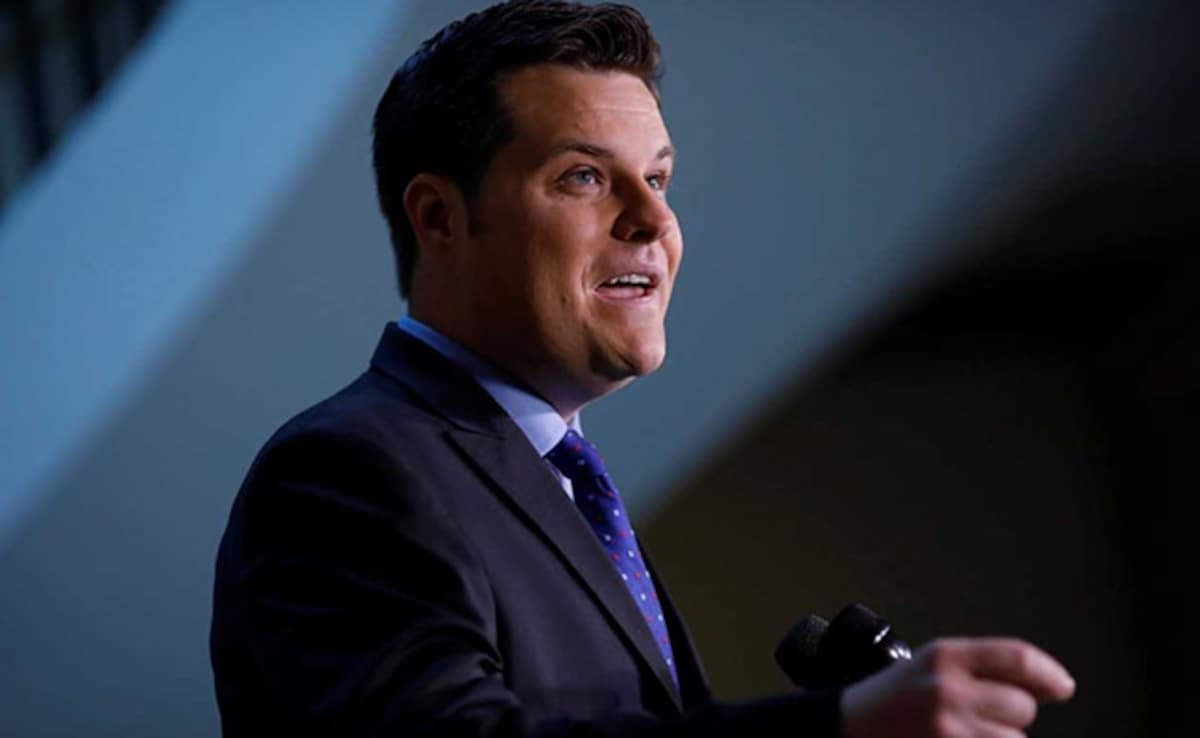In a political twist almost no one saw coming, on the morning of November 23, 2019, Devendra Fadnavis took oath as the Maharashtra Chief Minister for a second term. He stood on the same stage as one of his strongest opponents, Nationalist Congress Party’s Ajit Pawar, who was sworn in as Fadnavis’ deputy. The visuals from the Raj Bhavan shocked everyone.
But it all came a cropper within three days. Ajit Pawar, who revolted against his uncle Sharad Pawar, was soon back into the NCP fold, leaving Fadnavis with no other option but to tender his resignation. It’s a completely different matter that Devendra Fadnavis and Ajit Pawar would once again become part of the ruling alliance, led by the breakaway faction of Shiv Sena under Eknath Shinde, a couple of years later.
Mr Fadnavis, an astute man-manager, remains BJP’s most prominent face as Maharashtra goes to polls this month.
In recent days, Fadnavis, now the Deputy Chief Minister in the Mahayuti government, has been involved in a verbal duel with AIMIM chief Asaduddin Owaisi. The senior BJP leader on Monday called the Hyderabad MP a “descendant of Razakars”, a controversial paramilitary group of the Nizams during British India. His response came after Owaisi took a dig at Fadnavis over his “vote jihad” comment. He said “our ancestors” waged jihad (fight) against the British Raj, while “yours were writing love letters” to the colonial rulers.
Who is Devendra Fadnavis?
Devendra Fadnavis, whose political journey spans over two decades, served as the Chief Minister of Maharashtra from 2014 to 2019. Let’s take a look at how he rose from a corporator to the youngest mayor of Nagpur, ultimately going on to become Maharashtra’s first BJP Chief Minister.
With just over a week to go for the all-crucial Maharashtra assembly elections, the focus is back on the man who is believed to have engineered the split within not one but two parties — the Shiv Sena and NCP — in 2022.
Early life and education
Devendra Gangadharrao Fadnavis was born on July 22, 1970, in Nagpur, Maharashtra, into a Brahmin family with strong political roots. His family was actively involved in social work and associated with the Rashtriya Swayamsevak Sangh (RSS). His father, Gangadharrao Fadnavis, was a leader in the Jan Sangh and later served as a BJP legislator.
Devendra Fadnavis earned a law degree, followed by a postgraduate degree in business management, and then a diploma in project management from D.S.E. Berlin.
Political career
Devendra Fadnavis has been associated with the RSS since his early years. He entered active politics through the Akhil Bharatiya Vidyarthi Parishad (ABVP), the student wing of the Bharatiya Janata Party (BJP).
In 1992, he was elected a councillor for Nagpur Municipal Corporation, serving two consecutive terms. At the age of 27, he became the youngest-ever mayor of Nagpur. In 1999, he contested his first state elections from his hometown Nagpur and has since been elected for five consecutive terms to the state Assembly.
First term as Maharashtra Chief Minister
Devendra Fadnavis served as the Maharashtra Chief Minister from October 31, 2014, to November 12, 2019. Early in his tenure, he enacted the Right to Service Act, one of India’s first such laws, ensuring timely public service delivery. He brought nearly 400 services online. He also introduced the ‘Aaple Sarkar’ platform, a grievance redressal system.
As a representative of Nagpur, Fadnavis played a key role in addressing long-standing land ownership issues and helping resolve complex legal matters for his constituents. A strong proponent of Vidarbha’s development, he championed equitable progress for the region, earning him the Nag Bhushan Award in 2016.
Another significant milestone for him was that he became the first Maharashtra Chief Minister in nearly five decades to complete a full five-year term. Fadnavis also took additional portfolios, managing departments like home, general administration, urban development, law and judiciary, ports, and public relations, illustrating his diverse administrative acumen.
One of his signature initiatives, the Jalyukt Shivar Abhiyan, aimed to combat drought across Maharashtra. Under this initiative, which sought to develop decentralised water solutions, over 6 lakh low-cost water structures were built across more than 22,000 villages.
During his first term, a dedicated “War Room” was established to monitor the progress of critical infrastructure projects, addressing bottlenecks and ensuring timely completion. This approach fast-tracked projects such as the Mumbai and Pune Metro expansions, the Nagpur-Mumbai Samruddhi Expressway, the Coastal Road project, and the Mumbai Trans-Harbour Link (MTHL).
He introduced the Chief Minister Fellowship Program, inviting young professionals to bring fresh ideas and energy into government to help bridge the gap between policy-making and grassroots needs.
Devendra Fadnavis’ drive for economic growth extended to attracting foreign investment, with Maharashtra securing around 50% of India’s total Foreign Direct Investment (FDI) in 2016, highlighting his ability to ensure a business-friendly environment that appealed to investors and corporations alike.
His approach to social development also gained recognition among corporate leaders. Initiatives like the Village Social Transformation Mission, the SMART program to enhance value chains in agriculture, and the Sahabhag Social Responsibility Cell showcased his ability to mobilise corporate support for social causes.
Controversies and criticism
Devendra Fadnavis’ tenure as Chief Minister was not free from criticism. During the severe droughts that impacted Maharashtra, his administration faced scrutiny over several issues such as farmer distress, unemployment and insufficient relief measures.
In 2019, when Fadnavis took oath as the Maharashtra CM for his second term in a hush-hush ceremony, he came under criticism for how the entire process was carried out. After the Supreme Court ordered the government to face the floor test three days later, Fadnavis resigned.
The 2024 Lok Sabha election results brought Fadnavis’ leadership under scrutiny again. The BJP, despite being a part of the ruling alliance, could only win nine seats. Its alliance partner Shiv Sena won seven, while NCP managed to win just one.
More recently, after he became the Deputy Chief Minister in 2022, Devendra Fadnavis has been the de facto leader of the Mahayuti government. And that means he’s also the first to face criticism. The opposition has cornered Fadnavis, who also heads the Home Department, over the law and order situation in the state. From the delay in arresting the culprits in the Badlapur sexual assault case to the murder of NCP leader Baba Siddiqui, Fadnavis has been facing fire in the months leading up to the Assembly elections.
On November 10, Union Home Minister Amit Shah said the Mahayuti alliance partners will collectively decide on the Chief Minister after the state poll results. That makes the November 20 elections perhaps the most important one of Fadnavis’ political career. The results on November 23 will decide his immediate future.
Personal life
Devendra Fadnavis is married to Amruta Fadnavis, a banker and social activist. They have a daughter, Divija.













